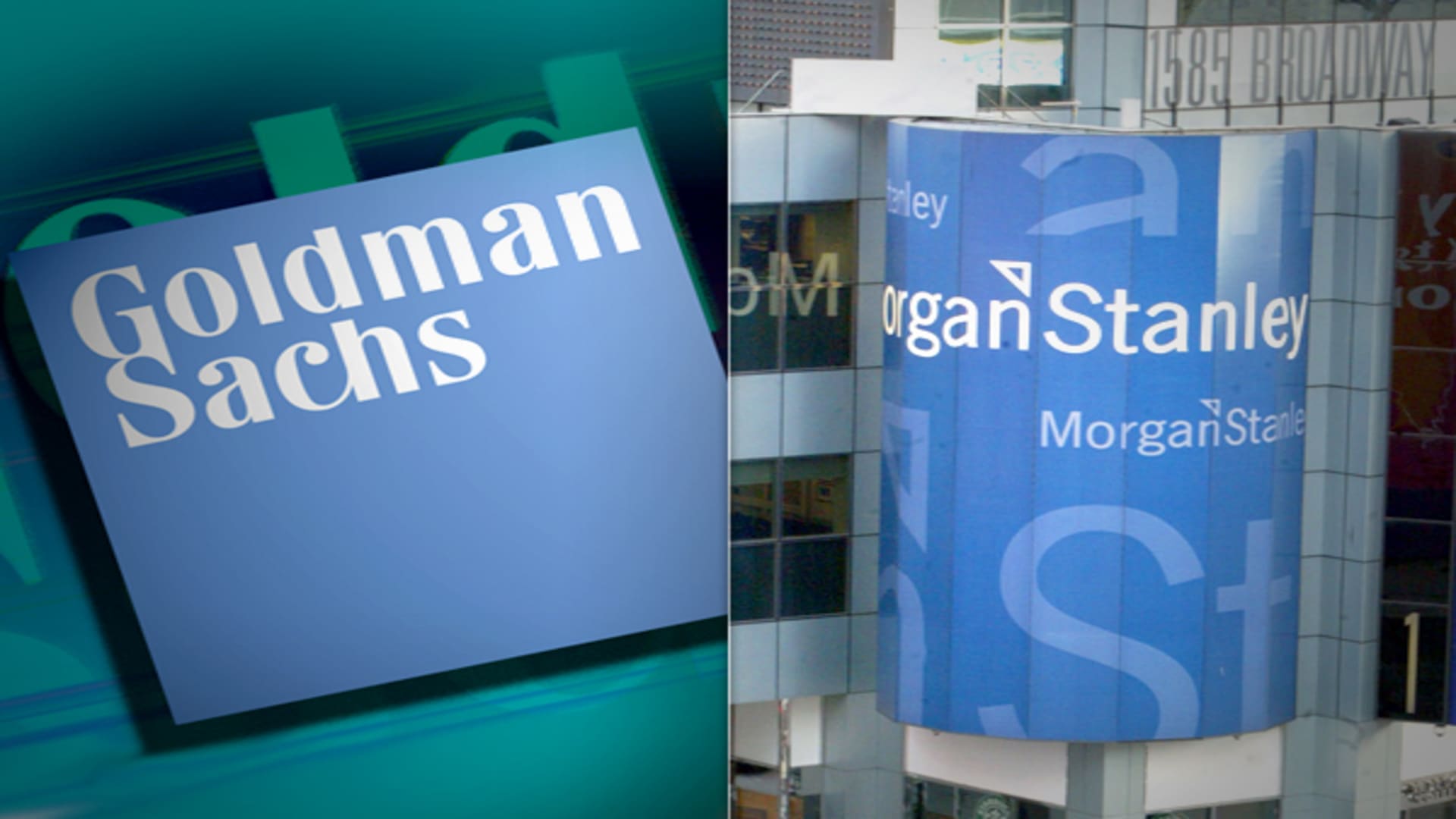
Goldman Sachs and Morgan Stanley were downgraded by Atlantic Equities on Wednesday, as concern grows over how investment banking activity could be affected by a potential recession. Research analyst John Heagerty downgraded Goldman Sachs to underweight from neutral and Morgan Stanley to neutral from overweight. Heagerty said the two banks specifically have few positive events on the horizon while shouldering downside risk of further slides in investment banking activities that would likely accompany an economic downturn. “While trading activity is so far holding up well and credit conditions remain relatively benign, the deeply inverted yield curve combined with various macroeconomic indicators suggest a recession may well arrive in 2023, likely leading to further declines in IB activity and falling equity markets, both of which have an outsized impact on the investment banks’ earnings,” he said in a note to clients. The analyst cut his Goldman price target to $290 from $330, implying downside of 8% from Tuesday’s close of $314.87. He also lowered his Morgan Stanley price target by $10 to to $85, implying a marginal gains from its previous close of $83.97. Banks have taken center stage as potential losers in a recessionary period. Concerns have begun swirling around the health of Credit Suisse , one of Europe’s largest banks. Meanwhile, Goldman became the first on Wall Street to cut jobs in response to slides in deal volume . A severe recessionary period could bring a decline of 50% to 60% in share prices for the two banks. Heagerty’s bear case places 2023 earnings per share down 36% and 29%, respectively, for Goldman and Morgan Stanley if there’s another 20% declines in IB fees, trading revenues and equity markets. Invesment banking is a bigger part of Goldman’s and Morgan Stanley’s businesses than for other banks. According to Atlantic Research, IB makes up about 25% of Goldman’s revenue and 17% for Morgan Stanley. That’s well above the industry-wide average of 10%. “Our sensitivity analysis indicates the potential earnings pressure from 20% declines in IB fees, trading revenues and equity markets,” he said. “Inevitably, Goldman Sachs and Morgan Stanley have the most downside exposure of the big six banks.” — CNBC’s Michael Bloom contributed to this report.
